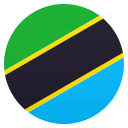Participate in ethics and data sharing community | Learn More
Bioinformatics Pipelines and Visualization
Inception: April 2020
# of Members: 60+
Chairs
Gültekin Ünal
Ankara University, Türkiye
Emily Smith
Theiagen Genomics, USA
Victoria Dyster
Mitra Bio, UK
Contact: [email protected]
Emeritus
Jamie Southgate
Kevin Libuit
Our Working Group is focused on the establishment of standards and best practices for bioinformatic pipeline development, workflow templating and management, packaging and containerization, code and documentation standards and strategies for support. Well integrated visualization and reporting tools are critical to convey actionable information to a range of stakeholders and decision-makers across multidisciplinary public health teams.
Virtual meetings are held bi-monthly on Thursdays, with further sub-working group meetings taking place at various times during the month. be used. New members that have signed up are invited to join in the discussions and can participate in volunteering their time on any one of the sub-working group projects:
In an attempt to assist this integration process, the bioinformatics pipeline and visualization working group of the Public Health Alliance for Genomic Epidemiology (PHA4GE) has drafted this living document to help define the major bioinformatics challenges for SC2 genomic analysis and suggest various open-source and freely available bioinformatics resources to address them.
The PHA4GE Pipelines and Visualization Working Group has created this document to highlight critical open-source/accesses resources to aid in the understanding and further analysis of the Omicron variant.
SARS-CoV-2 recombinants have garnered the attention of the public health community largely due to the unknown clinical and epidemiological implications. This uncertainty emphasizes the need to detect and characterize recombinant SARS-CoV-2 genomes, but the ability to do so rapidly and systematically is not without challenges.
In an attempt to assist with quality control (QC) measures, the bioinformatics pipeline and visualization working group of the Public Health Alliance for Genomic Epidemiology (PHA4GE) has drafted this living document to help define the QC challenges for SC2 genomic analysis and suggest a QC systems solutions to address them.
Genomic analysis of Mpox virus (MPXV) samples by public health laboratories is a critical component in understanding the global outbreak. The integration and awareness of appropriate bioinformatics tools to support these endeavours are potential challenges.
The proposed standards aim to provide a guidance framework for development, testing, maintenance of bioinformatics software. By adhering closely to these standards, software developers can enhance the quality, reliability and sustainability of their software, facilitating impact in public health research.

Public Health Agency of Canada

Global Health and Infectious Diseases Control Institute

Ekiti State Teaching Service Commission

EMBL-EBI

SIB Swiss Institute of Bioinformatics

Aga Khan University Hospital

University of Nairobi (CEBIB)

Washington State Department of Health

Uganda National Health Laboratories and Diagnostic

Institut Pasteur Dakar

Public Health Wales

National Reference Center for Genomics, Sequencing and Bioinformatics

Massachusetts Department of Public Health

University of Antwerp

Galaxy Project

National Center for Biotechnology Information

Ministry of Health

South African Medical Research Council

Centre for Biomedical Research Initiatives

Armauer Hansen Research Institute

All India Institute of Medical Sciences, New Delhi

Biodefense and Public Health Group at LANL

New England Biolabs

University of Nairobi

WRAIR

University of Edinburgh

South African Medical Research Council

Universidad de La Laguna

University of Liverpool

Kumasi Center for Collaborative Research in Tropical Medicine

SENASICA

Makerere University

Broad Institute of MIT and Harvard

National Service of Health, Safety and Agrifood Quality

Kumasi Center for Collaborative Research in Tropical Medicine

Theiagen Genomics

PathWest Laboratory Medicine

National Malaria Elimination Centre, Lusaka, Zambia; Malaria Control & Elimination Partnership for Africa

Broad Institute

Helix Biogen Institute

Federal University of Technology, Akure

Translational Genomics Research Institute (TGen)

University of Oxford / Wellcome Sanger Institute

Ethiopian Public Health Institute

Reference Central Laboratory

Gujarat University, Ahmedabad

US CDC

Scripps Research

World Health Organization

US CDC

Instituto de Salud Carlos III (ISCIII)

Theiagen Genomics

Swiss TPH

Theiagen Genomics

Research Institute

Kwazulu-Natal Research and Innovation Sequencing Platform (KRISP)

WACCBIP, University of Ghana

University of South Dakota

University of Oxford

Laboratorio Central de Salud Pública

Institut Pasteur de Tunis

Higher institute of Biotechnology of Monastir

Theiagen Genomics

Public Health Agency of Canada / University of Manitoba

Africa CDC

Makerere University

University College Dublin

National Virology Reference laboratory of Turkey

US CDC

National Institute of Applied Sciences and Technology

Institute of Human Virology

Aga Khan University

UKHSA / Imperial College London

APHL / US CDC

Institute of Health Carlos III

Makerere University

Kumasi Centre for Collaborative Research into Tropical Medicine

Kwame Nkrumah University of Science and Technology

PHA4GE

US CDC

Wayne State University

Texas Children's Hospital, Baylor College of Medicine

Public Health Ontario

Ohio Department of Health / CDC Foundation

US CDC

University of Lisbon

Institute of Environmental Science and Research Limited (ESR)

ILRI CGIAR

Institute of Technology and Renewable Energy (ITER)

Scripps Research

National Microbiology Laboratory Branch, Public Health

Bernard-Nocht Institute for Tropical Medecine

LCSP-MSPBS

University of Liverpool

Wellcome Sanger Institute

Chan Zuckerberg Initiative

Theiagen Genomics

University of Botswana

Noguchi Memorial Institute for Medical Research

National Public Health Laboratory

Universitas Airlangga

Statens Serum Institut

BHSCT Regional Virology Laboratory

Universidade Católica do Paraná (PUCPR)

The Pennsylvania State University

University of Melbourne

Pwani University, Kilifi

NIH

State Department of Public Health

Scripps Research

Government Agency

Theiagen Genomics

Pwani University

University of California, Merced

DPHL

Copperbelt University

National Institute for Communicable Diseases

Instituto de Medicina Molecular João Lobo Antunes

EMBL-EBI

Pwani University

University of Birmingham

University of Cape Town

University of Dhaka

National Institute for Communicable Diseases

Université Abdelmalek Essaadi

Nigerian Institute of Medical Research

Instituto Nacional de Salud

Makerere University

University of Cape Town

SANBI

University of Liverpool

Chan Zuckerberg initiative

Institute of Tropical Medicine

Kathmandu University Hospital

University of Basel

National institute for Communicable Diseases

Wyoming Public Health Laboratory

United States Food and Drug Administration

Makerere University

Yale School of Public Health / SalivaDirect Inc.

Pennsylvania Department of Health

The Aga Khan University Hospital

Institute of Health Carlos III

Public Health Wales

NIH / USDA

Public Health Research Institute

National Institute for Communicable Diseases

Botswana Harvard AIDS Institute Partnership

Sorbonne University

Bill and Melinda Gates Foundation

University of Bristol

JIPMER

Washington State Department of Health

Wellcome Sanger Institute

The Central Public Health Laboratories

Tribhuvan University

University of Cape Town

Kumasi Center For Collaborative Research In Tropical Medicine

icddr,b

PathWest Laboratory Medicine

Centre de recherche et de formation en infectiologie de Guinée (CERFIG)

Cardiff University

University of Melbourne

University of Washington

South African Research Council

Institute of Human Virology

Mitra Bio

UAntwerp

Centre Pasteur du Cameroun

Aga Khan University Medical College

Noguchi Memorial Institute for Medical Research

Galaxy Europe / University of Freiburg

Botswana-Harvard AIDS Institute Partnership

China National Center for Bioinformation

University of Bath

Global One Health Initiative (GOHi) Ohio State University

NCDC

National University of Sciences & Technology (NUST)

CDC

Medical Biology Department

Ohio Department of Health

R4DHP

Delaware Division of Public Health

US CDC

University of Yaoundé I

Private Industry

MRC / UVRI / LSHTM / Makerere university

KEMRI | Wellcome Trust Research Program

University Of Ibadan

Rhodes University

University College London

University of Virginia

Gujarat Biotechnology Research Centre

Lugar Research Center

University of Virginia

Noguchi Memorial Institute for Medical Research

University of Pretoria

Institute of Human Virology

Noguchi Memorial Institute for Medical Research

Chulalongkorn University

Institute for Medical Research, National Institute of Health

Animal Health Diagnostic Center - Cornell University

SA Pathology

Research institute

Chulalongkorn University

Georgia Tech Research Institute

Federal University of Rio de Janeiro

Mohammed VI Polytechnic University

Michigan State University

ARTPARK, Indian Institute of Science

Queensland health

ARTPARK, Indian Institute of Science

University of Freiburg Medical Centre

KEMRI

State Government

Deakin University

University of Glasgow

University of Michigan

International Center for Research and Training in Applied Genomics and Health Surveillance (CIGASS)

Government

Ghana Institute of Management and Public Administration

University of Oxford

Simon Fraser University

SANBI

Zihi Institute

University of California San Diego

Opendream

Tshwane University of Technology

Ashoka University

Oxford Brookes University

University of Pretoria

University of Ibadan

African Center of Excellence in Bioinformatics and Data Intensive Sciences

South African Medical Research Council

University of Wisconsin Madison

Uganda Virus Research Institute

Uganda Virus Research Institute

Central Public Health Laboratories

Universidad Técnica de Ambato

NA

Armauar Hansen Research Institute

Kilimanjaro Clinical Research Institute

University of California, San Francisco

Tanzania National Public Health Laboratory

University of Melbourne

Agricultural Research Council

University College Dublin